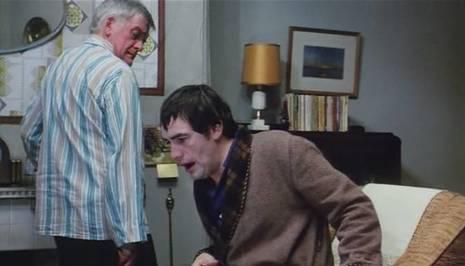 Adapted from the stage play by David Storey, Lindsay Anderson's In Celebration tells the story of Andrew, Colin, and Steve, three well-educated sons of a coal-miner, who return home to their modest roots on the eve of their parent's wedding anniversary. Returning home to their dank little childhood home, Andrew, Colin, and Steven all come as successful professionals by traditional standards, but only Colin, a successful executive for an automotive company seems to be comfortable and happy with his current place in the world. Much to the dismay of his family, Andrew appears to be the most embittered, the brother who has grown tired of living his life defined by the traditional meaning of success, opting to quit his job as a lawyer in the hope of becoming an artist. As the family reconnects, revelations are revealed not only about the present but also the past are old memories are unearthed, some of which their parents hoped to keep buried. While its stage play origins are quite obvious, with the film taking place almost entirely in the small row house and being very dialogue heavy, Lindsay Anderson's In Celebration is a well staged and directed film, a story of underlying tension and constantly evolving perspectives. The film captures what lurks under the veil of good manners, politeness, and general decency, finding these three brothers' slowly reveal their overall frustrations with their place in life. Like much of Anderson's films, In Celebration is a story of many things, but perhaps the film's most interesting aspect is its existentialsim, painting a portrait of a group of characters who routinely struggle to define themselves and their success in this world. The film doesn't judge these characters for their past mistakes or the animosity they show, rather Anderson shows an incredibly humility towards all of her characters in this story, empathetic to their existential struggle. This is perhaps best exhibited in her treatment of the parents, characters who hid dark secrets from their children, with Anderson realizing it was done so with kind intentions in mind, acknowledging that intention isn't always enough. Featuring strong performances all around and an extremely well-written screenplay that touches on a host of issues facing humanity such as consumerism, self-satisfaction, and family bonds, Lindsay Anderson's In Celebration is an intricate character study with big ideas.
0 Comments
 Josh Kriegman & Elyse Steinberg's Weiner is an intimate documentary examining of disgraced New York Congressman Anthony Weiner's mayoral campaign in New York City, a film that sets out to, and succeeds at providing one of the most intricate looks at modern politics, campaigning, and the media circus which has been created by the 24 hour news cycle. A film that can be enjoyed by any person along the political spectrum, Weiner is a film that succeeds at being both intimate and grandiose, a human study of a disgraced man whose past mistakes not only deeply effected his political career but also his relationship with Kuma, his wife, who also happens to be one of Hillary Clinton's top aids. Weiner isn't interested in the right vs. wrong aspects of politicas as a documentary but documenting the current landscape, presenting modern politics and the 24 hour news cycle in all of its glory, capturing the reactionary culture it has created and how the general public and the media alike become fixated onto mistakes and scandals, unwilling to maintain objectivity simply due to the fact that vilifying an individual is much easier and more self-satisfying. In doing this, the documentary presents a convincing argument that the news cycle often distracts viewers from what is really important, in this case focusing on Weiner's past indecencies instead of what his political views are for New York City. This constant barrage is self-inflicted in a sense considering it's Weiner who decided to run regardless of his scandal, but the toll it takes on both him and his wife, Kuma, is a very humanistic aspect of this film, as the grating effect of the 24 hour news cycle makes a punching bag out of Weiner and it begins to take a toll. Privacy is simply non-existent for both Weiner and his wife Kuma, characters who are forced to watch in great detail their personal marital struggles splashed all over the headlines. As much as any documentary can, Weiner maintains objectivity in its examination of this flawed, but passionate man, capturing both his humility and lack-there-of, as he fights to maintain momentum of his political campaign regardless of the pressures from both the media, his party, and the public to drop out of the race. Weiner is an in-depth documentary that raises a lot of questions about politics, privacy, and the media, never pretending there are easy answers to complex problems facing modern society. Its ability to remain objective in examining this flawed but well-intentioned man's mayoral campaign is its greatest attribute, a documentary that delivers an energetic, fast-paced experience that seems to match its spirited subject, Anthony Weiner.  Rodrigo Pla's A Monster With A Thousand Heads is a lean, well-paced, angry film which uses a thriller type narrative to loudly deliver a socio-political commentary on healthcare, focusing specifically on the slow turning, cold mechanics of bureaucracy. The story is centered around a desperate woman in Sona, who has just received news that her husband's cancer has become more aggressive, progressing to the terminal stage. Racing to secure approval from her insurance company, Sona finds her timely request met with indifference. As this indifference and neglect grows, Sona snaps, responding to her primal nature to take care of her family by becoming increasing violent, intent on saving her husband. A Monster With A Thousand Heads is a deeply humanizing portrait of a woman pushed to the edge by beaucracy, with the film beautifully revealing the inhumanity that is merely a biproduct of large corporations or government organizations. Running about 80s minutes in length, A Monster With A Thousand Heads wastes very little time unraveling it's narrative, with the filmmakers creating a well structured story out of this straightforward narrative. While I would argue the film could have been clearer in establishing the shortfalls of the insurance company in the beginning, there is no denying the tragic plight of Sona, a character who feels abandoned by modern medicine and bureaucracy, simply fighting for her husbands life. While the socio-political commentary around healthcare has been done before and better (Danis Tanovic's An Episode In the Life of An Iron Picker for example), what I found so fascinating about A Monster With A Thousand Heads is how it reveals the overall lack of empathy society, and humanity, can have when trauma or pain does not directly effect them. Throughout A Monster With A Thousand Eyes the filmmakers routinely focus on Sophia's increasingly hostile plight through the eyes of various by-standers, routinely focusing on this outsider perspective. From the doctors' receptionist, to two young woman in an elevator who blindly enter into the fray, to a simple gym goer who witnesses Sonia's hostility from across the locker room, all these characters' serve an understated purpose, exhibiting the sharp contrast between Sona's personal struggle and the colder, unaffected bistanders perspective. It's an interesting touch, and id argue it elevates A Monster With A Thousand Heads above mere healthcare commentary and more into the larger commentary of humanities overall lack of pathos, with bureaucracy just being something that enables this detachment from ones we have no personal investment in. In the end, A Monster With A Thousand Heads is a powerful story told in an inventive yet straightforward way, being a film that uses the emotional intensity of a thriller to comment on socio-political issues about healthcare, as well as larger issues about humanities over detachment from one and other. 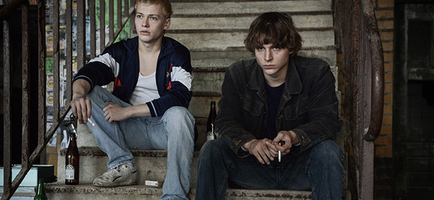 Andreas Dresen's As We Were Dreaming is a harrowing coming of age story which takes place in Eastern Germany, shortly after the fall of the Berlin Wall. Focusing on the lives of a group of rambunctious youth that includes Rico, Daniel, Paul, and Mark, As Were Were Dreaming follows these four young men as they "live in the moment", stealing cars, taking drugs, and opening a disco in a secluded old warehouse, intent on creating a music-fueled scene where youths can come to drink and dance. Facing resistance from a group of neo-Nazi skinheads who wish to control the disco, Rico, Daniel, Paul, and Mark navigate the somewhat tumultuous streets of post-Berlin Wall Germany, directionless, hoping to snag their piece of the pie. Andreas Dresen's As We Were Sleeping is a film which uses the backdrop of post-Berlin War Germany to explore the lens of youthful promise and potential disappointment, chronicling the early exuberance of youth, and how quickly the "live in the moment" mentality evaporates when adulthood hits and responsibility and direction are paramount. The narrative of As We Were Dreaming is somewhat meandering and a bit clunky, jumping back-and-forth between these characters' young childhood in grade school and their present borderline delinquency, establishing the relationships which exist among these characters, in particular that of Dani & Rico. If there is a main protagonist in this ensemble cast it's Dani, the most sensitive and put-together member of this group. Dani is a character who has stood by his friends through thick and thin, with the film subtlety suggesting that some of his friends, such as Rico, have much more emotional trauma due to a less-than ideal youth. The flashback sequences are a bit clunky, but they do serve an important purpose to the narrative, establishing Dani's deep-seeded allegiances to his friends which explain his present, inability to move past the directionless, delinquency of his life. Dani is a character who is introduced as more sensitive, more put-together than his other friends, the character in the group who sees one of the local girls as more than just a sex object, a character who resists the idea of physical conflict and begins to grow tired of his friends aimlessness in life. His early dreams of being a reporter have completely evaporated due at least in part to his bonds of friendship, with the film suggesting that he is essentially being held back of his true potential. The overall aesthetic of Andreas Dresen's As We Were Sleeping paints a rather dire portrait of Germany in this time period, one where a harsh, gray-infused color palette soaks up every composition, exhibiting the dire stakes of these characters environment, where drugs, fed-up parents, and teenagers alike seem to show very little faith in future prospects. At its core, As We Were Dreaming is a story about individuality, with Dani being a character who has to free himself from the self-destructive collective of his friends. He is a character who must reclaim his own sense of purpose, his own drive to be something, no longer able to drift in life after seeing the serious toll it had on most of his friends and even the girl of his dreams. In the end, As We Were Dreaming is a film that struggles a tad with pacing due to a narrative that doesn't always feel seamless at times, but for what Andreas Dresen's As Were Were Sleeping lacks in narrative efficiency it makes up for in raw energy, delivering a captivating portrait of youth during this unique time period in German history.  Taking place in a secluded region of Lithuania known as the "Land of Songs', Aldona Watts' documentary of the same name, focuses on the lives of five sprightly old woman, who may be the last remaining voices of their village's ancient folk traditions. Living a sustainable lifestyle where they tend to themselves, cut off almost entirely from the modern world, Land of Songs provides an observational study of these five unique woman, providing a tender and lyrical portrait of the importance of personal heritage, with folksongs providing these woman that outlet. Aldona Watts' Land of Songs is a documentary intent on capturing the secluded lifestyles of these woman, offering up a pensive portrait of tradition and the importance of maintaining one's culture through the ages. It's a very candid documentary, with many of the woman profiled being incredibly endearing individuals with sharp minds, who speak their minds yet have a surprisingly optimistic perspective on life due to past darkness endured, such as World War II. Land of Songs captures how these folk songs aren't merely music but a gateway into the history and culture of this small region of Lithuania, one that has been through devastating times during WWII, where both Axis and Ally contended over the region. The folk-signing tradition is one that is vibrant but also essential, due to this small region seeing war, occupation, and the continued mass exodus of youth to more populace regions, as the residents of this secluded region use the universal language of music as not only a testament to their heritage but also a soothing force on these character's souls, an outlet for these character to express their sorted, and somewhat dark history. While the woman profiled are incredibly upbeat and cheerful, there is a quiet sense of tragedy running through Land of Songs, a film that at times seems to acknowledge that it is documenting a slowly dying culture. Tender, poetic, and objectively observational, Aldona Watts' Land of Songs beautifully captures the importance of heritage, documenting how our past, present, and environment often define who we are as human beings. 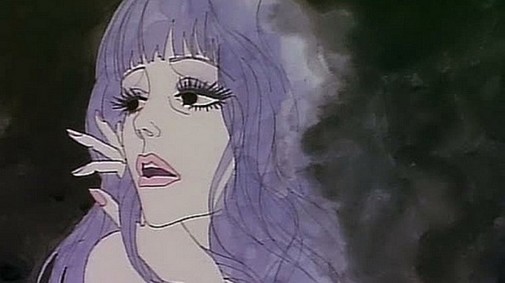 Eiichi Yamamoto's Belladonna of Sadness is a well-crafted, avant-garde Japanese animated film which tells the tragic story of Jeanne, a beautiful peasant woman who is raped by the land baron of her village on her wedding night due to her and her soon-to-be husband failed to pay the province their marriage taxes. Rejected by her husband after the act, Jeanne makes a pact with the devil in an effort to gain wealth and power she has never possessed. Her newfound power doesn't come without consequences though, as the land baron subsequently banishes her from the village suspecting witchcraft is at play. When the bubonic plague engulfs the town, the baron has a change of heart about Jeanne, asking her to save the town from its newfound darkness, offering up a rank of highest noble in return for her services. Loosley based on the 1862 book La Sorciere by Jules Michelet, Belladonna of Sadness is a story of resistance, a tale of anti-authority through the lens of feminism. Belladonna of Sadness is quite avante-garde, a film that is certainly up to interpretation, but with aspects of Jeanne's tale drawing direct parallels with Joan of Arc, the salem witch trials, and other prominent woman in history, it's a pretty objective opinion that Belladonna of Sadness is a film that has something to say about the oppression of the patriarchy through history with Jean being a strong woman standing up to the forces that be, a film that is overly sexualized, intent on touching on the sexual liberation for females through its beautiful hand drawn animation. The film is visually striking and direct, but also nuanced at times, subtlety capturing the day-to-day oppression a female has endured in the past. One example of this is Jeanne's husband, a man who seems to generally care for her though he views her almost entirely through the lens possession. When he tries to plead with Jeanne to come back to him towards the end of the film, he intends to be heartfelt, but his words the possessive perspective in which he views the female form. I'm by no means an expert when it comes to Japanese animation, having only seen a handful or so of the more acclaimed works, but even still the animation in this film feels simply stunning by comparison. Hypnotic and transfixing, nearly every frame serves as a canvas of pure artistry, with the filmmakers creating a surrealistic, feminist portrait where most of the story-beats are told through stoic tableaux, with Jeanne's inner thoughts and feelings being told in expressive animation. The bubonic plague sequence is one of my favorites in the film, a surrealistic nightmare of death, darkness and despair. Simply put, Eiichi Yamamoto's Belladonna of Sadness is a surrealistic, feminist work of art, that should be seen. 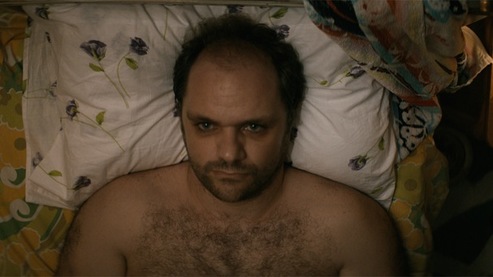 Argyris Papadimitropoulos' Suntan is a powerful and daring examination of how much of an effect emotional distress can have on the psyche of an individual, providing one of the most troublesome studies of loneliness and pain I've seen in quite awhile. The story is centered around Kostis, a middle-aged doctor, who has just been appointed to a tiny island off the Greece coast. A quiet man, Kostis is introduced as a character who is kind, but stays mostly too himself, a man who appears to have grown accustomed to his own solitude, with an island in the middle of winter offering the perfect setting for this character. Kostis interacts with the locals, and seems to be well liked during the winter, but the filmmakers make sure to capture how nearly every single one of his interactions is 1 on 1, similar to how a doctor is very singular with his patient. Even the first scene of the film, with Kostis' boat arriving at the island, is shot using wide compositions with lots of open spaces, visually evoking the sense of solitude in this character, a man who seems to have accepted that his life, which is more so than not defined by companionship, has passed him by. When summer arrives, the Island couldn't be more different than the winter, becoming a thriving vacation spot, with nude beaches and crazy parties where the young invade the town. This of course doesn't exactly mesh with Kostis' typical lifestyle, though he doesn't appear particularly opposed to it. One day a group of young, beautiful tourists arrive at his doctor's office after a minor accident, asking for Kostis help with Anna, who has suffered an injury in a minor bike accident. Even in this scene the filmmakers perfectly capture Kostis' passive personality around others, with the character sorta having their way with him in the doctor's office, their playful demeanor throwing the quiet man off, as he is unable to be authoritative even in his own personal environment . There is really no question that the beauty of the flirty Anna entices Kostis, as does the flirtation of rediscovering his youth, leading Kostis to go out of his way to try and impress the young woman. What makes Suntan work so well is that the relationship that unfolds between Kostis and this group of young people, particularly Anna, does feel endearing at first, with both Anna, her friends, and Kostis seemingly enjoying each other's company. The film merely hints at Kostis beginning to neglect his responsibilities as the town doctor, as he begins to spend more and more of his free time drinking with this group of young tourists, whether it be at a beach, various nightclubs, or house parties. While the characters seem to generally enjoy each others company for the most part, it's clear that Kostis begins to misinterpret the free-spirited, sexual Anna, viewing their relationship as more intimate and sincere than she does. The viewer did see this misinterpretation somewhat coming, as Suntan feels like a slow motion car crash wit the fragile man, whose budding obsession begins to become worrisome. Things begin to escalate when Anna and her friends leave the island for a few days, not informing Kostis of their exit. Kostis spirals out of control, alone nighty, drifting in a sea of despair and debauchery. Suntan hints that Kostis was a man who has past relationship based trauma and tragedy, maybe even being married at one point, but the film intentionally remains vague about his past troubles, only making it clear early on that his budding obsession and prior solitude is fueled in someway by loneliness. When Anna returns his obsession becomes downright scary not only for Anna and her friends but also the viewer, due to the filmmakers creating a character we've grown to have empathy for, recognizing that he simply was seduced by the possibility of youth and love. Kostis actions late in the film take a very dark turn and i'm sure some viewers will find it too much to remain empathetic, but for me, the final scene of the film perfectly captures this character.- a deeply broken man who has been ravaged by solitude and isolation. What he has done was a temporary moment of insanity, as Kostis now must come to terms with the realization of what he has done due his fragile psyche.  Pou- Soi Cheang's Kill Zone 2 is an action packed, high octane crime thriller that delivers not only on excitment, but also thematically, being a surprisingly well-designed examination of the fine line that can exist between good vs evil, when ones own loved ones are threatened. Without going into plot details, Kill Zone 2 is the story of that at first feels very convoluted, offering up a host of character perspectives early one with very little explanation. There is Kit, a Hong Kong cop caught deep undercover, his uncle, Wah, who feels responsible for his nephew's newfound incarceration by the hands of the crime syndicate he was attempting to bring down, and lastly Chai, a Thai Prison guard, whose daugher desperately needs a bone morrow transplant after being diagnosed with leukemia. While Kit and Wah are attempting to bring down Mr. Hung, the leader of a major crime syndicate, Chai is a man caught in the middle of this conflict. The narrative becomes more straight-forward as the film progresses, but that is also when the film becomes fascinating thematically, with nearly every character in this film, good and bad, being pulled in some capacity by allegiances to their own family. Wah is attempting to save his nephew, while Chai wishes to help cure his dying daugher, and the contrast between their paths and that of Mr Hung, the antagonist, is a fascinating one when considering he is dying himself from a bad heart. While the protagonist characters wish to save their family members, Mr Hong seeks to destroy his brother, taking his good heart in a utterly selfish attempt to keep himself alive. With Chai's daughter's death hanging in the balance, Killzone 2 sees this character's morality tested, as Mr Hung attempts to pit Chai and Kit against each other due to their outstanding allegiances to their family. Killzone displays the difference between good and evil, with Chai unwilling to cause death or destruction for the sake of his daughter's life, a man unwilling to go to same level as people such as Mr. Hung who selfishly kill for personal reasons. Killzone is a story of hope and faith in this regard, as Chai must not do something amoral for the sake of his daughter, realizing that going against his own moral code to do so would make him no differnent than Mr Hung, as this type of action would be going against his personal beliefs centered around hope and having faith. For those uninterested in the film's more thematic intentions set around morality, fate, and hope, Kill Zone 2 best attribute still remains it's engrossing set pieces. Featuring kinetic cinematography and a camera that seems to never stop moving, the filmmakers have created a grand orchestra of carnage and violence, with action choreography that is brutal and utterly unpredictable in the framework of it's fight sequences. Killzone 2 is a brutal and violent crime epic that is sure to appease fans of the Hong Kong action genre, but what stood out to me is the film's interesting thematically centered around morality and hope, with the film capturing just how little control humanity truly has over life.  Terence Davies' Sunset Song is a beautifully crafted exploration of one woman's endurance against the harsh realities of growing up in the Scottish countryside, as she perseveres in a world dictated harshly by the patriarchal forces of traditional lifestyle. A study of the conflicting forces of the modern world and age-old tradition, Sunset Song presents a powerful and poetic coming of age story of Chris, with her intense passion for life being one of the things that keeps her going through years of torment. The daughter of a tyrannical man in John, her father, Sunset Song focuses on Chris' so-called formative years in the beginning, documenting the pain and torment not only she endures, but also her brother and mother due at the hands of this vile, mean-spirited man. While her brother is eventually able to leave the oppressive household, due to finding work elsewhere, Chris and her mother aren't granted such a luxury, given the fact that woman are viewed strictly as second-class individuals, caregivers and child-bearers who are essentially linked to their male counterpart, whether husband or father, until they deem otherwise. In this way, Sunset Song is a film that focuses on feminine perseverance, with Chris even seeing her own mother commit suicide, seeing it as the only way in which she can rid herself of her husband's tight, cold grip. While I would certainly argue that characterization of Chris' father can be a little over dramatized at times, he is an important character in Sunset Song, a potent symbolic representation of masculinity in this time, where toughness, and respect were demanded and the will of the patriarch was done, with feminine introspection not even being considered in any family decision making. A story of strength, Chris endures her father's abusive tendencies right up until his death, which also becomes Chris' empowerment in this stark, patriarchal world when she learns that all of her father's savings has been passed directly down to her. Given a sense of individuality and freedom she had never experienced before, Chris becomes intertwined with a young man in Ewan, with the two falling in love with one and other, intent on starting a family together. All of that changes though, with the dawn of the first World War reaching out from afar, which eventually sees Chris' husband Ewan reluctantly enlist in the conflict, due to facing extreme pressures related to being perceived as a coward by his peers for not going into conflict with the other men. In the days leading up to his departure, Ewan becomes a much more volatile husband, mirroring the actions of Chris' father on some level, taking out his own fears of going to war and death out on his wife. His fear is considered cowardice and weak from the perspective of traditional masculinity, and Terence Davies' Sunset Song perfectly captures how these insecurities create volatility and conflict, becoming an oppressive force against Chris' nurturing, feminist qualities, as well as Ewan's own good-natured demeanor up until this point. While Terence Davies' Sunset Song lacks the nuance and dimension of the filmmaker's profound earlier work, it's a film that still stands over most, being an intimate, yet grandoise story of hope, tragedy, and love, which deconstructs how volatile the stringent definition of masculinity can have not only on feminism, but also men, who at times can feel forced to live up to its stringed definition. 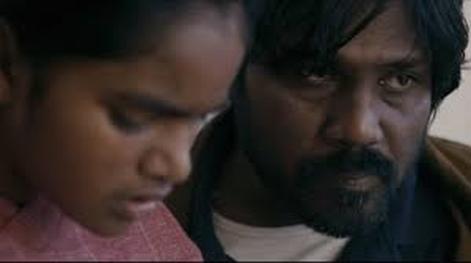 At its core, Jacques Audiard's Dheepan is a film about the psychlogical effects of war, attempting to illustrate the long lasting trappings such horror and tragedy can have on the psyche of a good natured person. The story follows Dheepan, who was serving as a Tamil freedom fighter in Sri Lanka. Falling on the side of defeat as the war reaches its end, Dheepan has seen a lot of death, including the presumed murder of his wife and child. Fleeing the country, Dheepan has two strangers accompanying him, a woman and a little girl who are claiming to be his wife and daughter, with the hope being that this will make it easier to achieve asylum in Europe. Arriving in Paris, the "family" moves into what could only be described as a run-down paris slum, with Dheepan getting work as a caretaker. Attempting to build a new life, Dheepan is confronted with the unfortunate reality that his new environment is also one infested with bubbling violence, forcing him to confront the demons of his past. The first half of Jacques Audiard's Dheepan is near masterful, with the filmmaker delivering a compelling examination of the immigrant experience. Dheepan's inner turmoil is compelling but it is only of this migrant stories unique twists that make this film's narrative compelling. These characters not only face the difficulty of adjusting to this new culture and language, they also must learn how to act like a family. withh one of the film's stronger attributes being its characterizations of both Dheepan and Yalini, his "wife". Dheepan is a character who is desperate to start over and escape his dark past, refusing to accept the fact that he has simply left the hostility in Sri Lanka for a different hostile environment where he is surrounded by drug dealers and mafia types- his past has become his present. Compounding this fact is his relationship with Yalini and his "daughter", as the seemingly broken man begins to get confused about the nature of their relationship, as one can imagine his past trauma related to his own wife and child has clouded his perception. Dheepan is compelling, showing subtlety and nuance in its deconstruction of postwar trauma and migration story but unfortunately that all changes towards the end of the film, with Audiard injecting the film with a little too much Action, which is certainly well directed, but feels a tad forced, inorganic, and blunt to a film that had been told to that point with such nuance and grace. While personally I'd argue that the ending of Dheepan wraps things up a little too nicely, there is no denying that Jacques Audiard has delivered another well-crafted film in Dheepan, in which the film's intimacy and characterizations are its strongest attributes. |
AuthorLove of all things cinema brought me here. Archives
June 2023
|
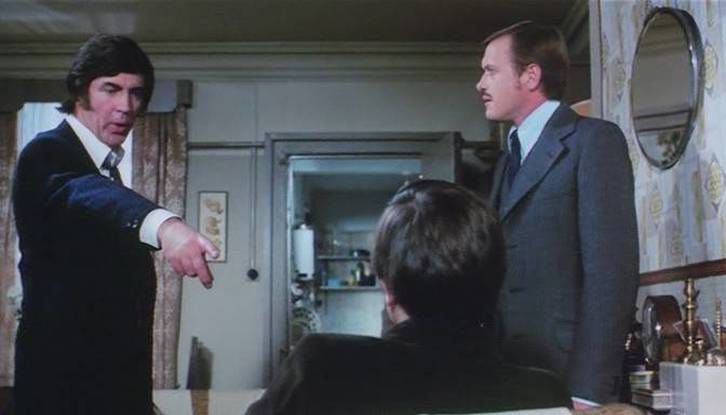
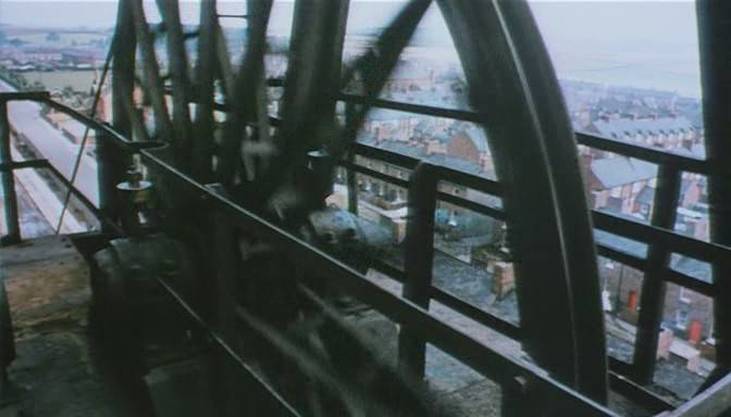
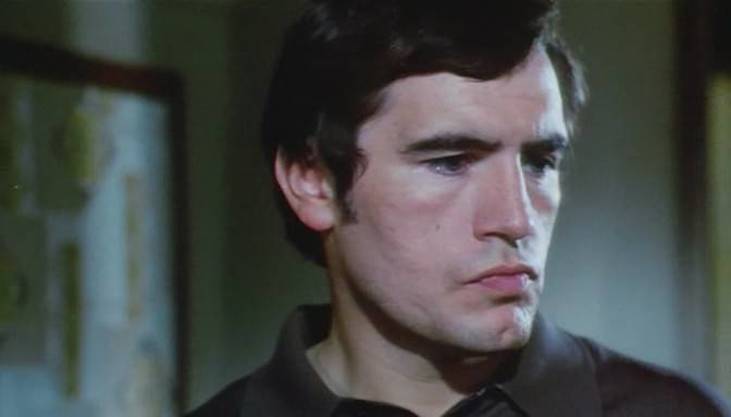



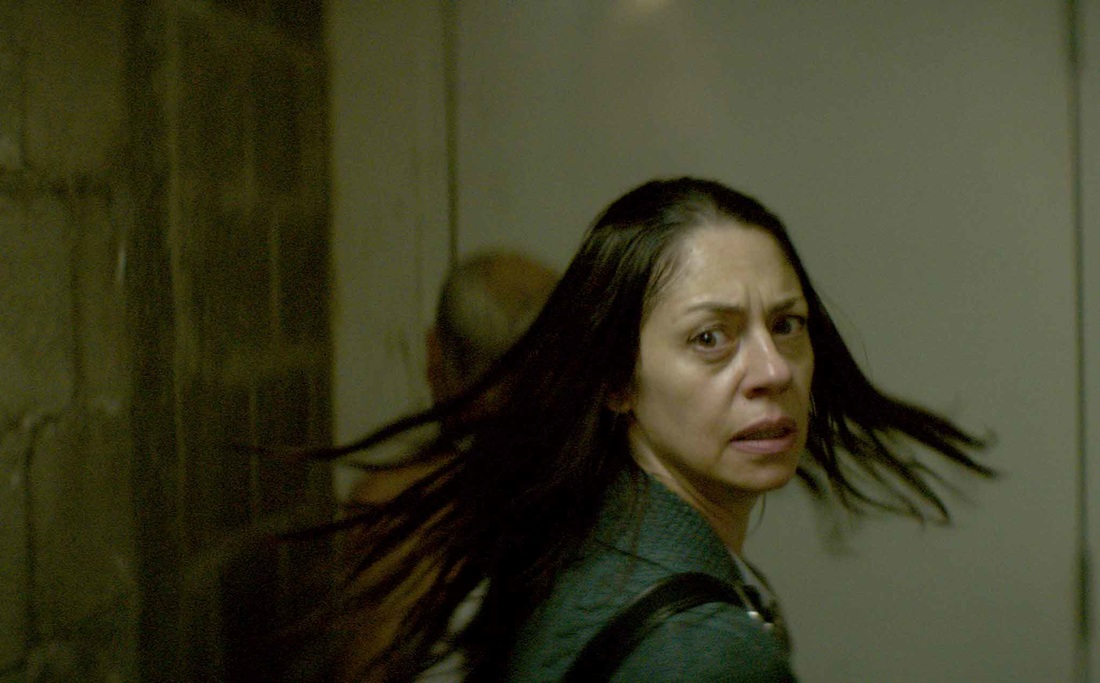


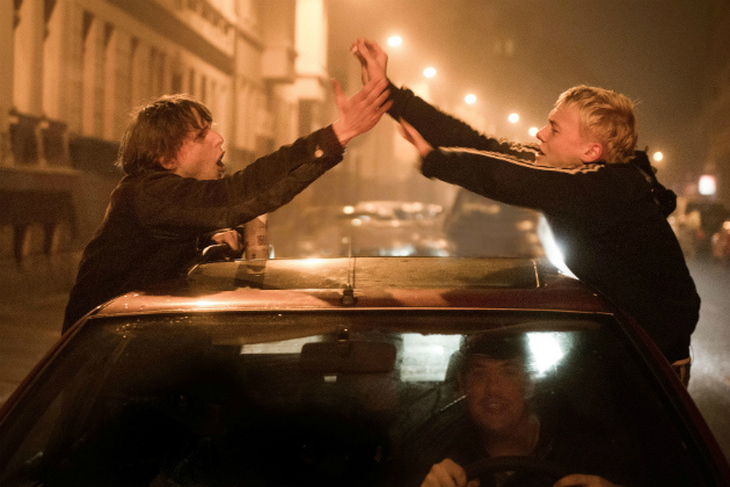
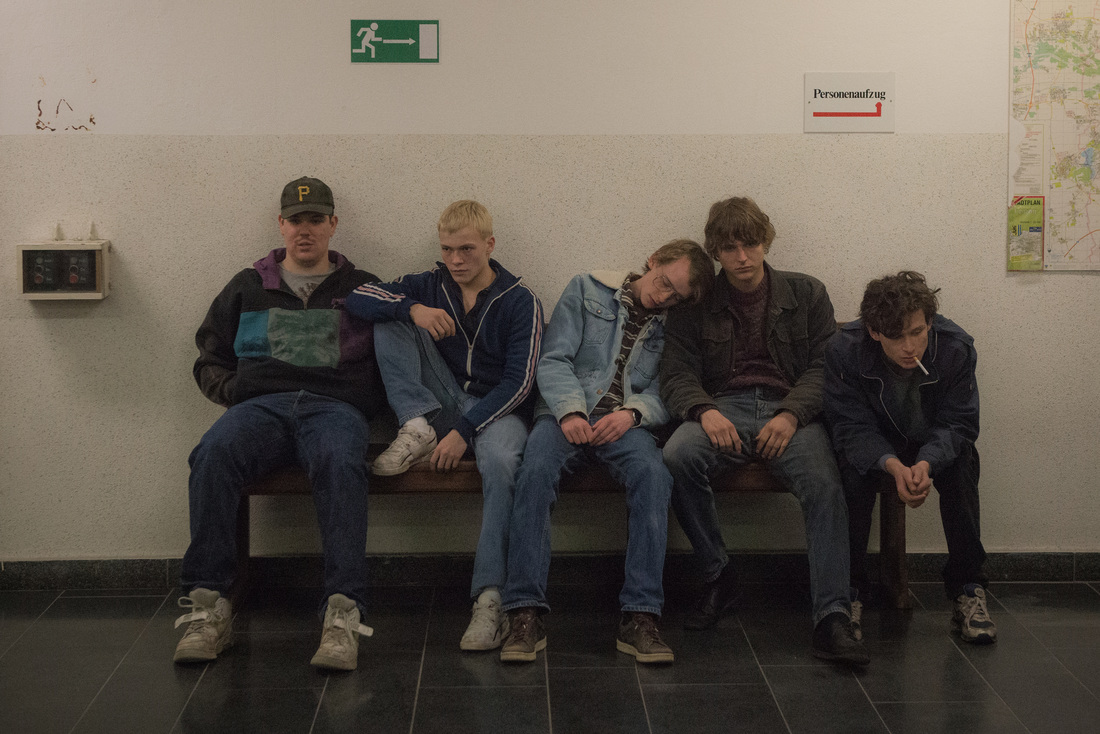
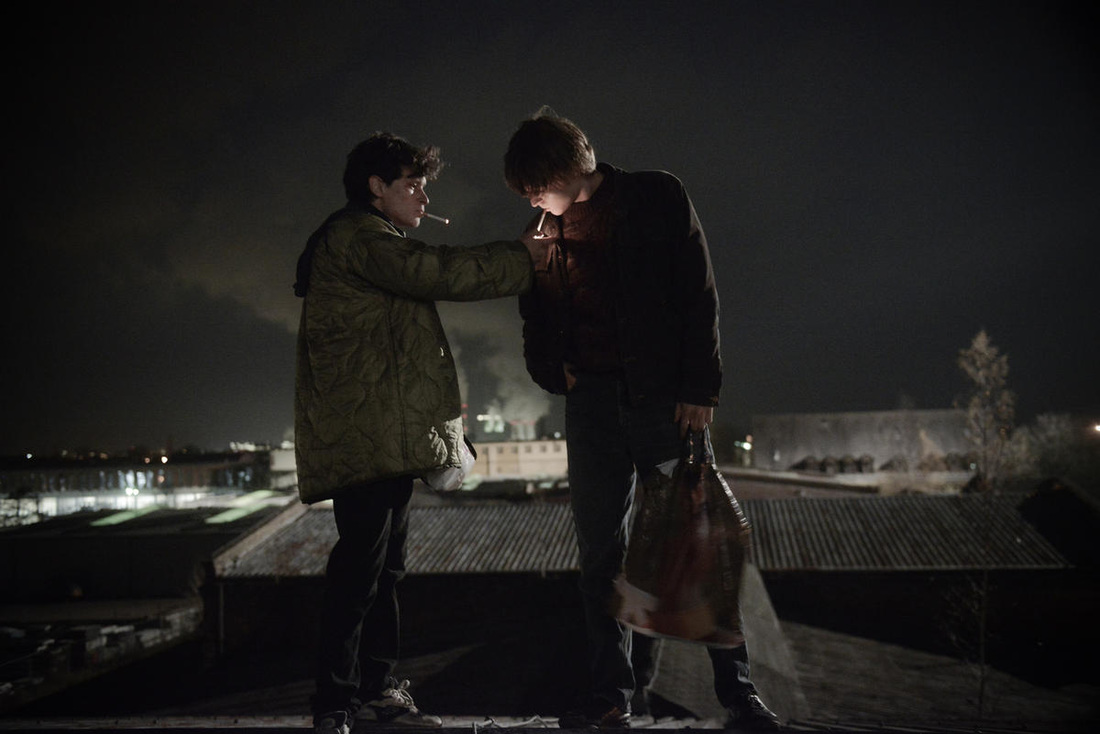
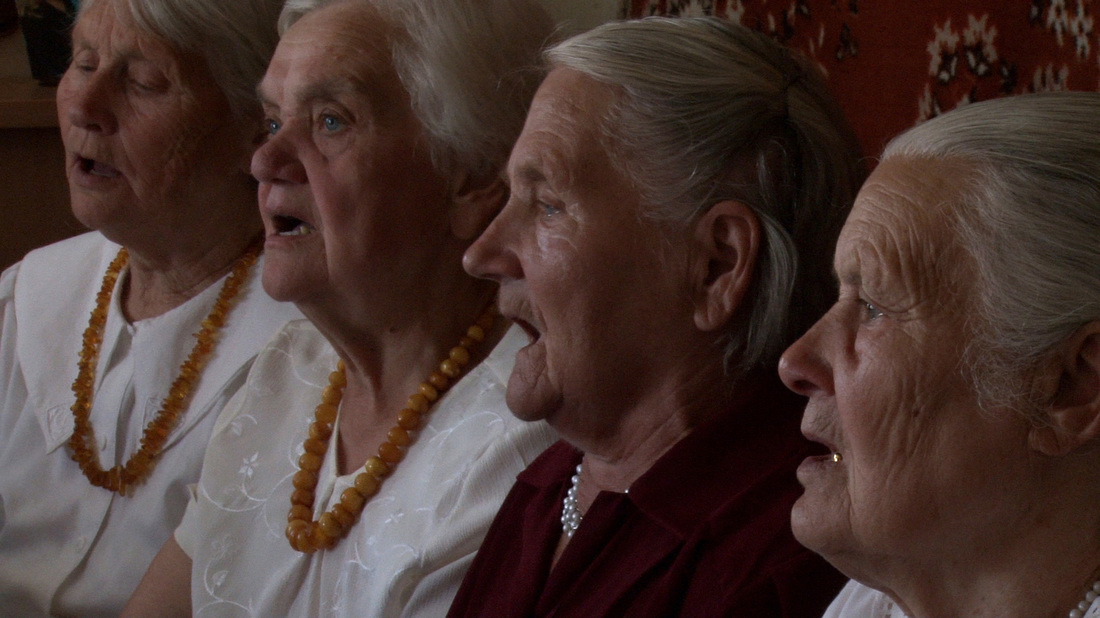

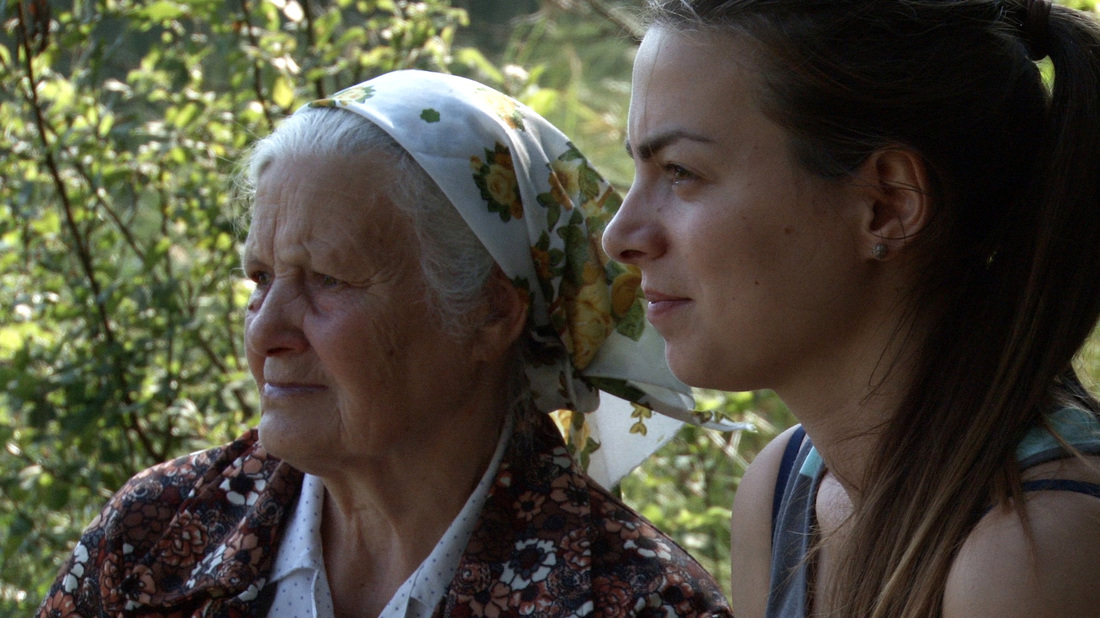
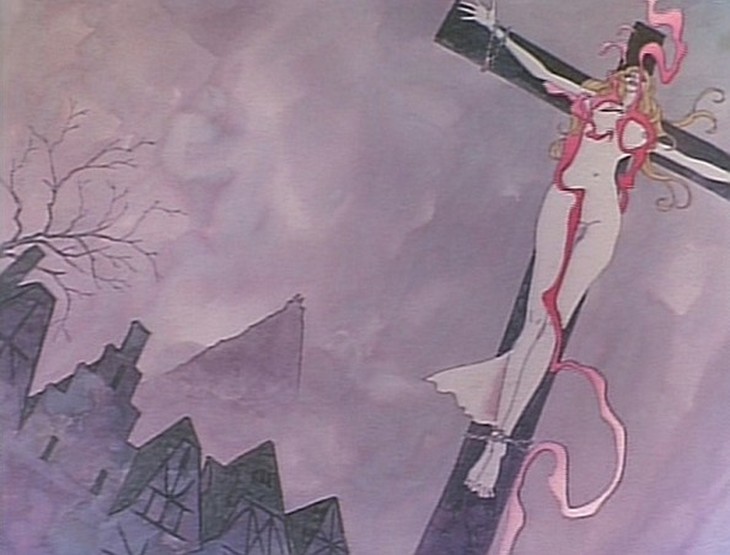
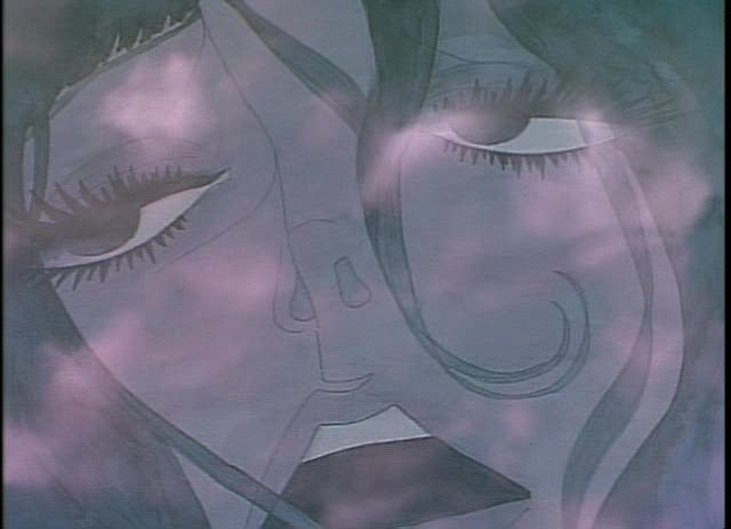
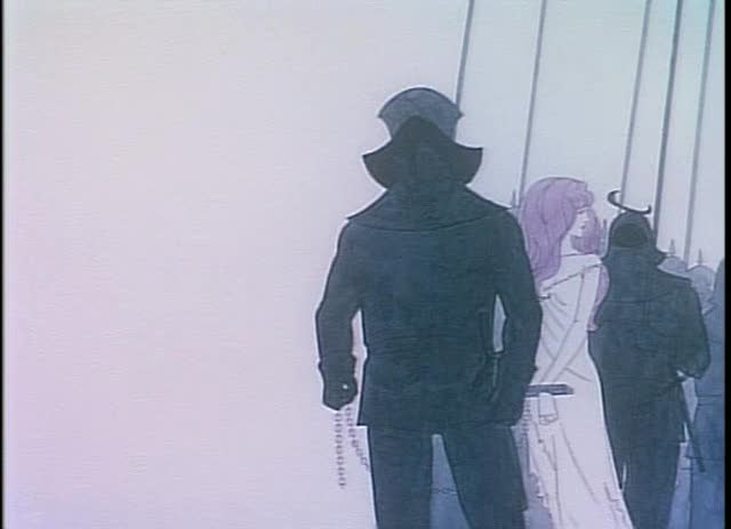

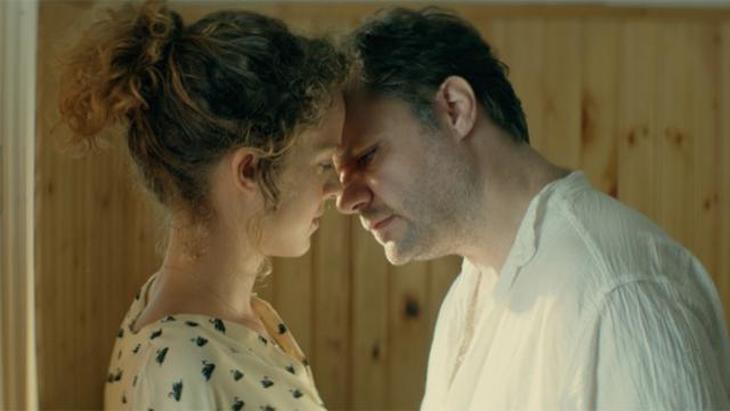
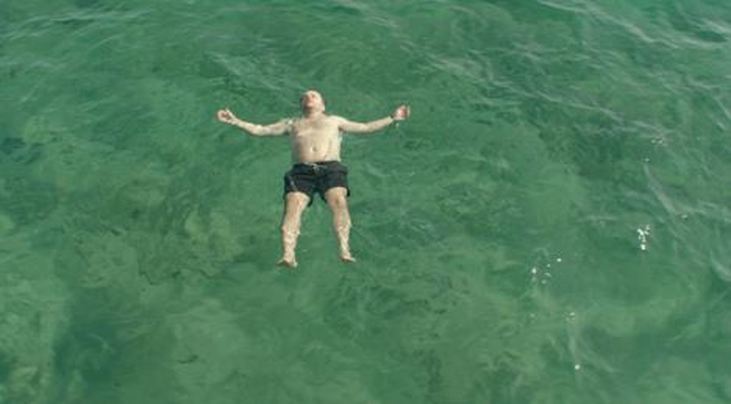
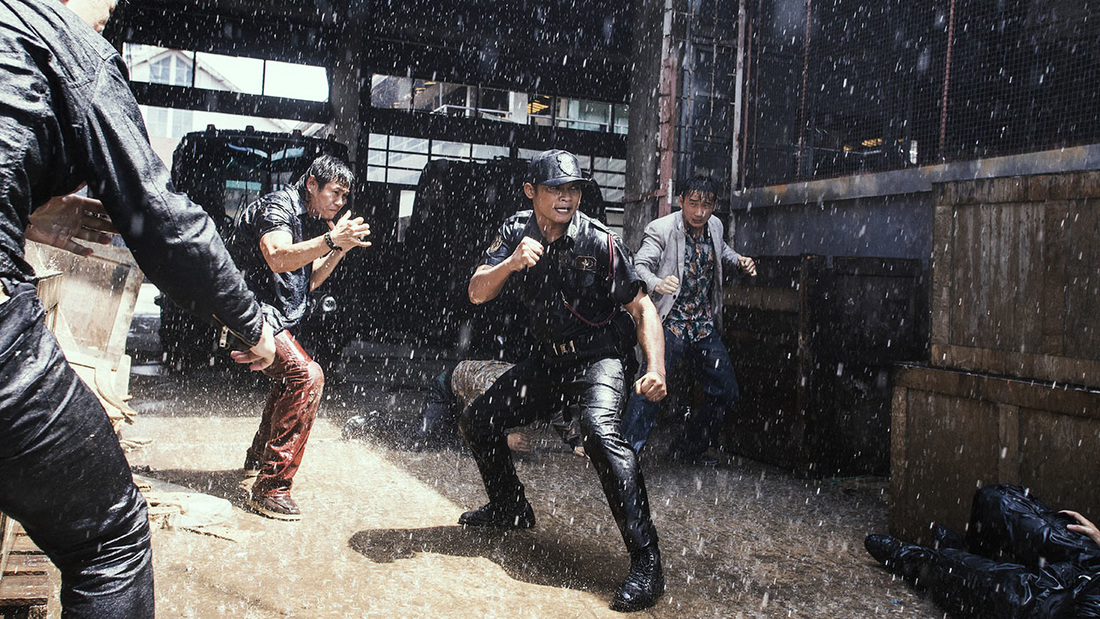

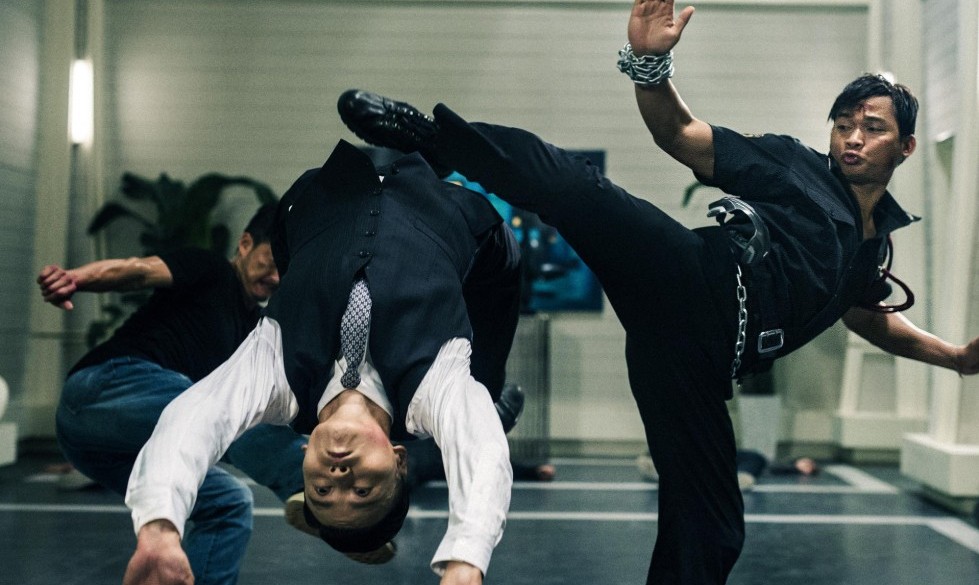
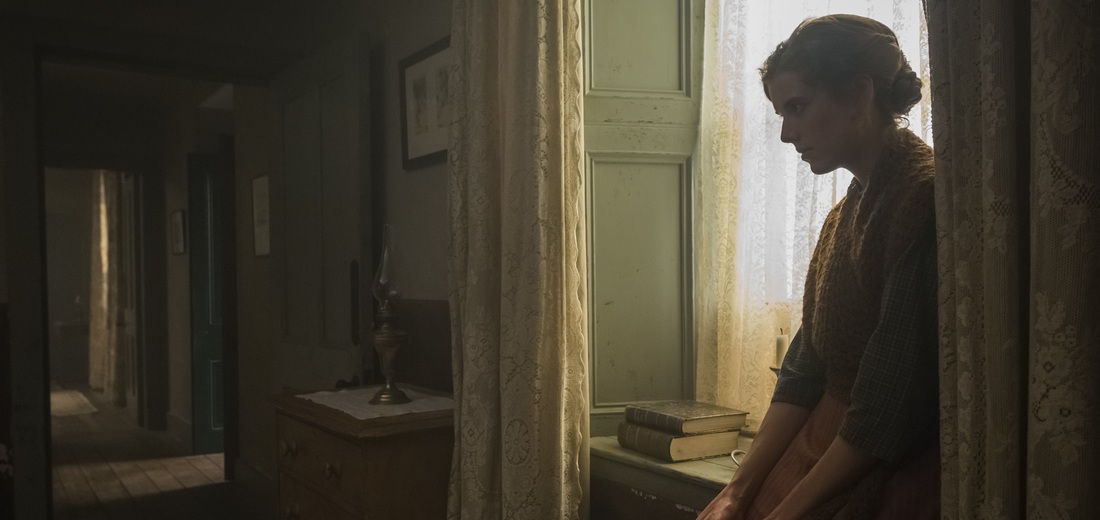
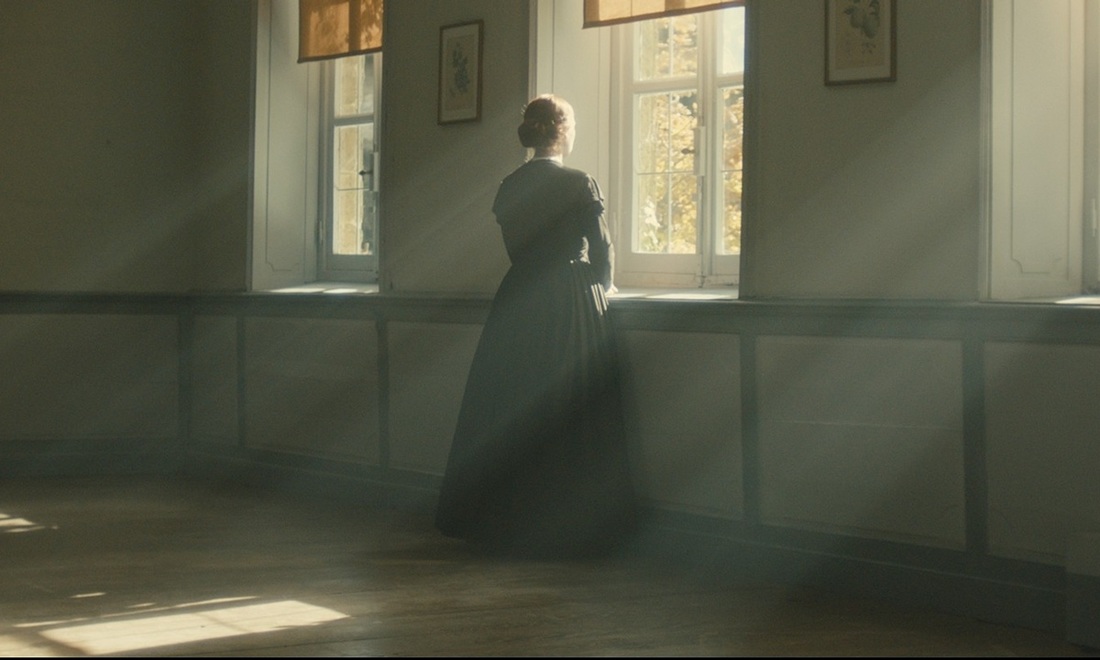
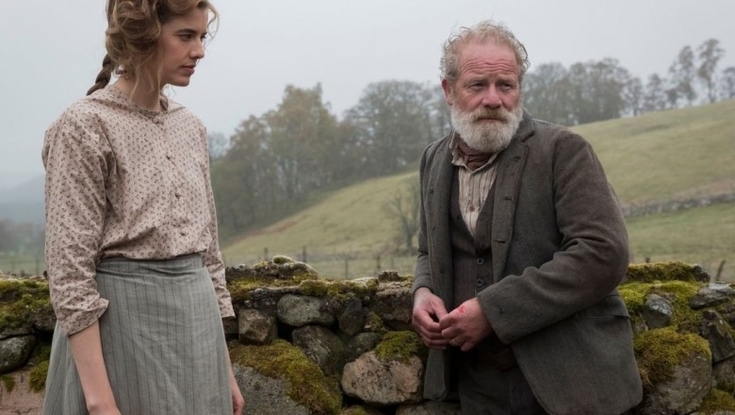
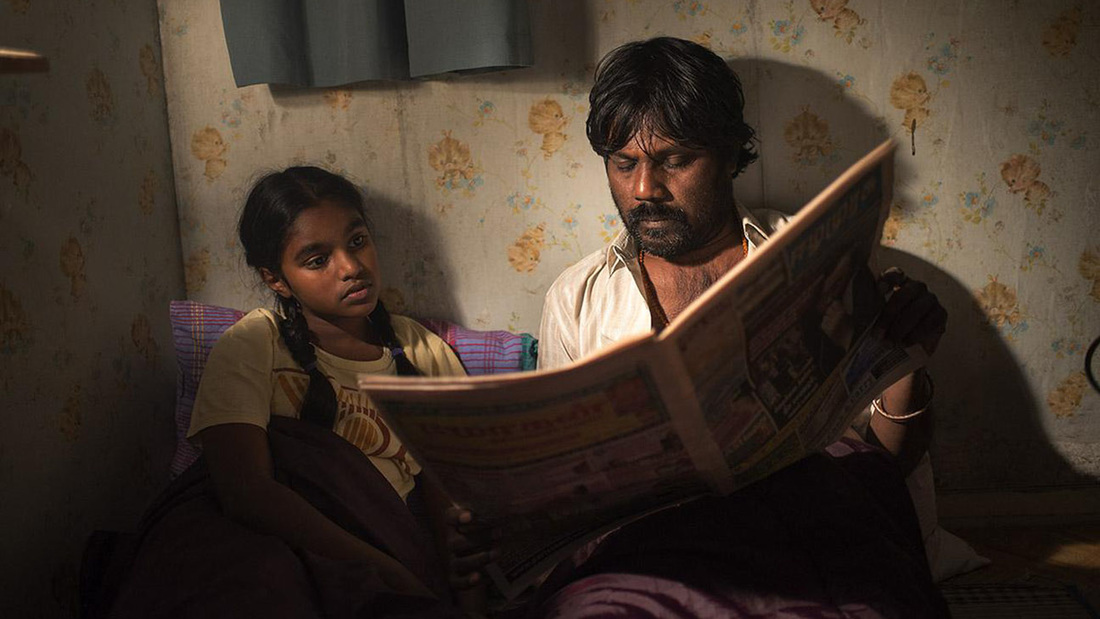
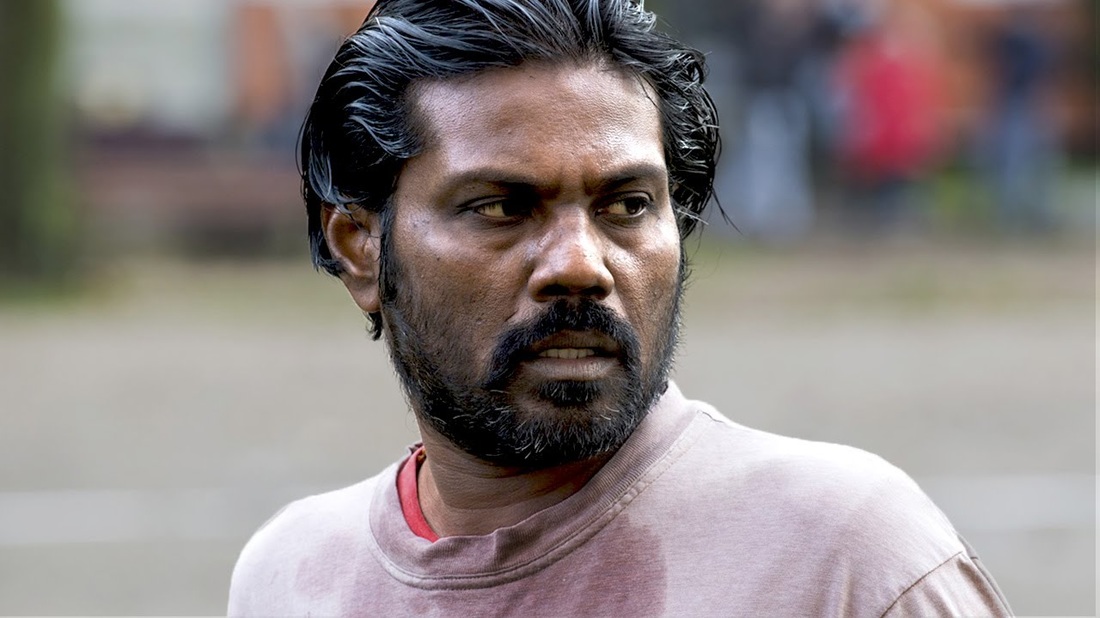
 RSS Feed
RSS Feed
